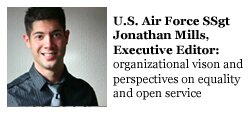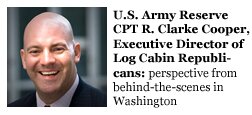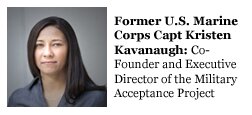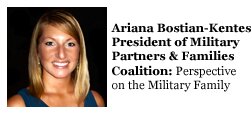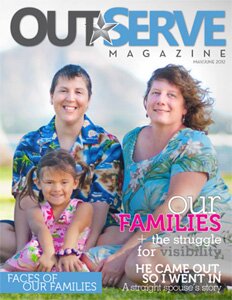by Shaun Knittel
The brave men and women serving in the armed forces need advocates in the government. There’s just no getting around it. One of the most important things select members of the U.S. Senate are involved in is setting policy for VA benefits so that after service to ones country, service members can take comfort in knowing that some elected officials are looking out for them (and their families) if they make the ultimate sacrifice, retire, or need medical attention. One of those officials is U.S. Senator Patty Murray (D-WA), chairman of the Senate Veterans’ Affairs Committee.
In April, I got the chance to witness firsthand how committed to U.S. veterans Murray is – LGBT veterans in particular. I took part in a roundtable meeting between Murray and gay and lesbian veterans where she asked us for our input on how well the VA was working for us. The thing I recall most about the meeting was her keen knowledge of military language, even using military acronyms herself.
Also, she was sympathetic about LGBT issues that move beyond the reach of her committee and was again, knowledgeable about our struggle for equality. She made it known that she does not support DOMA and understands the harm that is doing to the families if service members in a same-sex marriage or registered in a civil union or domestic partnership.
June is Pride month and Senator Murray reached out to me and asked if I could include a message from her to OutServe members in my weekly blog post. I think she’s earned it. So here it is, a message from Senator Patty Murray:
“Far too often in our nation’s history we’ve seen groups of Americans who aren’t afforded equal protection under the law because they don’t look or love like their friends or neighbors. But time after time we’ve seen these groups rise up, with the support of those who seek to right these wrongs, and prevail over the status quo – changing the course of American history and giving true voice and meaning to the idea that all are created equal.
We saw it in the early 1900s with women’s suffrage, in the 1960s with the push for civil rights, and today as we continue the steady march towards equality for members of the lesbian, gay, bisexual, and transgender community.
Equal protection under the law is a fundamental right in our country. No one should suffer discrimination because of their race, color, religion, national origin, age, sex, sexual orientation, or gender identity. Whether applying for a job, finding a home, eating in a restaurant, serving in our military, or attending school, we must ensure all citizens are treated fairly and equally. That’s why I have been proud to fight alongside the LGBT community as we’ve made some truly historic gains over the past few years.
As Chairman of the Senate Veterans’ Affairs Committee, I am particularly proud of the progress we’ve made on behalf of the LGBT men and women in our Armed Forces and our nation’s veterans with the repeal of “Don’t Ask, Don’t Tell.” But while repeal is an important victory in the fight for equality, there are still many challenges ahead as we work to ensure each of our veterans receives the same quality care and services once they leave the military.
As openly gay and lesbian servicemembers separate from active duty and seek services through the Department of Veterans Affairs, they represent a population with certain unique needs for which VA must be prepared. And so, back in April, I decided to host a roundtable in Seattle with LGBT veterans from Washington state to discuss what Congress and the Administration could be doing to better prepare.
I was fortunate enough to be joined by several trailblazers, including Major Margaret Witt. Major Witt, as many people know, successfully sued the Department of Defense to be reinstated to her full rank and benefits after she was discharged from the Air Force for being a lesbian. As a nurse, Major Witt talked about how important it is VA be a welcoming environment for LGBT veterans and their families, and that VA be responsive to and respectful of LGBT veterans’ health concerns. She recounted a time while reviewing a transgender patient’s file and was very disturbed to see the patient had been diagnosed with a “personality disorder.”
In my time as Chairman, I have heard countless stories from servicemembers and veterans who aren’t receiving the type of care they have earned because their needs are either misunderstood or they’re unsure whether VA is a welcoming place for them and their families. This is why I’m working with VA to make progress on things like ensuring our VA medical centers comply with the new policy that allows same-sex spouses to visit their loved ones. And while I will continue oversight of this issue, I think it is an important step that VA now requires each medical center to have a written policy on visitation.
I have been so proud to work with the LGBT community on issues affecting veterans and on many other issues important to the cause of equality. But while we have seen some important victories these past few years, we know Pride Month isn’t just a time to celebrate these accomplishments. It is also a time to recommit and recharge for the fight that’s ahead.
When Washington state Governor Chris Gregoire signed the same-sex marriage bill into law this February, it was a day of joy for all of the loving, committed gay and lesbian couples of Washington — and for all who love, respect and support them. This law takes us one important step closer towards true equality for gay and lesbian families across Washington state. Unfortunately, there are those who are now trying to turn back the clock. This is wrong and we’re going to fight to prevent this from happening.
I am also going to keep fighting to enact federal laws that protect every student from bullying, including the Student Non-Discrimination Act, Safe Schools Improvement Act, and the Tyler Clementi Higher Education Anti-Harassment Act. I am also proud to support the Employment Non-Discrimination Act, which would make sure no worker in America would have to worry about being fired because of their sexual orientation. And I will continue fighting for the repeal of the Defense of Marriage Act and for other legislation that ensures equal protection under the law for all.
I believe strongly that when we celebrate the dignity and worth of each of our citizens we celebrate the best of what it means to be American. It is why I get up and fight every day to help people, solve problems and end injustice in our laws. And whether it is a veteran not feeling welcome at a VA medical center or receiving the quality care he deserves, the violence and fear caused by a hate crime in our community, or the talent that goes missing from our workplace when someone is fired for being gay – we all suffer when discrimination prevails.
To me, the fight for equality for the LGBT community is a fight for what it means to be American.”
Working for veterans is one of Senator Murray’s top priorities in the Senate. As the daughter of a disabled World War II veteran and as a college intern at the Seattle, WA VA psychiatric ward, Murray knows personally the sacrifice that military service demands, and she knows personally the sacrifices that we all need to make for our veterans.
In addition to her position as Chair of the Veterans’ Affairs Committee, Patty Murray is a member of the Senate appropriations subcommittee that funds the Department of Veterans Affairs.
Murray’s record proves that she has been a tireless advocate for veterans, fighting for increased funding for veterans healthcare, increased benefits, housing assistance, new veterans clinics throughout Washington State, and accountability from the VA. She has fought for increased education benefits, expanded employments assistance, and reduced wait times for veterans with pending claims.

